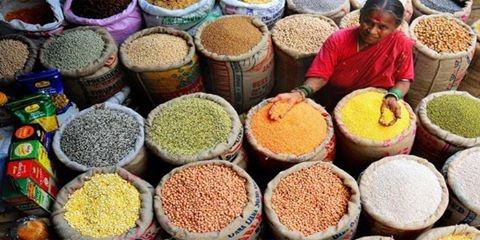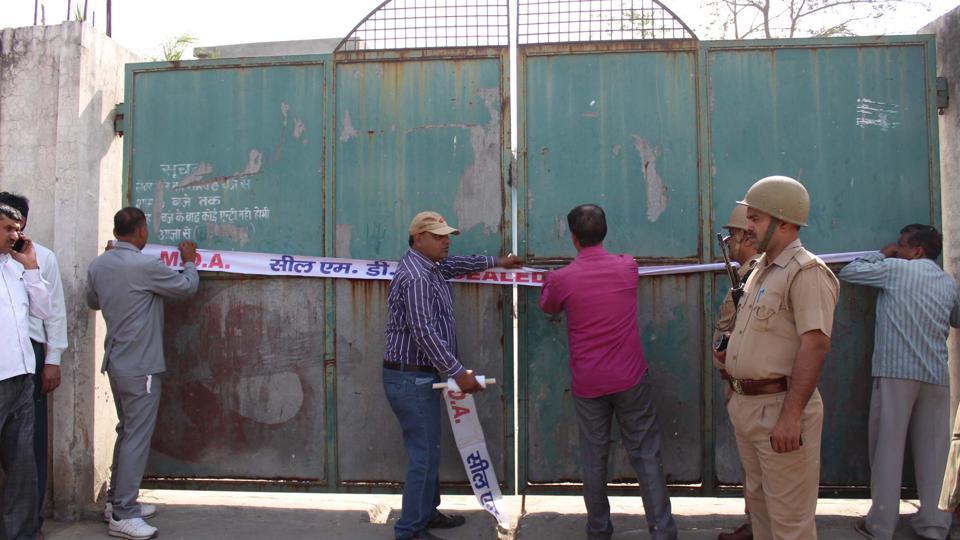Once again, it is the people who pay the price, the poor more than those better off.
Consider the following facts, all culled from official data:
● Prices of gram dal have risen by an astounding 75% in the last three years. From an average of about Rs 49 per kg at the retail level in May 2014, it has risen to about Rs 86 per kg at present
● Prices of urad dal have risen by 46% from an average of about Rs 68 per kg at the retail level in May 2014 to about Rs 99 per kg currently
● Prices of arhar have gone up by 24% over the period of these last three-years
And this is when you are looking at three-year variations. What these figures do not reveal is the dizzying heights some of these prices reached during this period before coming down a little. Arhar dal prices, for instance, had spiked to Rs 200 per kg in Sept-Nov 2015. Sugar prices had crossed Rs 50 a kg about a year ago. Onion prices had crossed Rs 100 a kg within the first year of the Modi government. In October 2015, mustard oil prices had reached over Rs 150 per kilo.
In a country where a sizeable section of the population is forced to subsist on a largely or completely vegetarian diet either because of cultural reasons or because meat is too costly to afford, pulses are a crucial source of protein. When their prices hit such unaffordable levels, the poor have little option to cut back on their consumption. And remember that this comes in the context of already declining consumption of pulses as prices put them more and more out of reach of the poor. The amount of pulses consumed per person has steadily declined from about 61 grams per person per day in 1951 to about 44 grams in 2015.
Pulses provide a stark example, but this trend of runaway price spirals in food articles, in particular is familiar enough to all of us. The government may make light of it, pointing out that prices after all came under control after a few weeks or months, but for the poor those few weeks or months matter because they have no choice but to cut back on consumption till prices reach affordable levels. A government that was not so enamoured by markets would intervene quickly and decisively to prevent these price spikes. But like its predecessor, the Modi government too believes the market should be left to ‘self-correct’. The people of India pay the price for this ideological blinker.
Ironically, where allowing markets to determine prices would actually have seen a sharp drop in prices – in the case of petroleum products – the Modi government has once again upheld its anti-people nature by keeping prices at around the same level as they were three years ago. While the current international price of oil has dropped to less than half what it was three years ago. Once again, we do not need to look beyond official data to establish the point.
In June 2014, weeks after the Modi government came to power, the monthly average international price of what is called the ‘Indian basket of crude’ – a combination of various specific kinds of crude oil that India imports – touched $109 per barrel. From that level, it fell steadily to an average of just below $47 per barrel in January 2015. After rising again till May, when it averaged a little under $64 per barrel, it dropped to as low as $28 per barrel in January 2016. Since then, it has risen to now hover at around $50 per barrel.
You would think retail prices of petroleum products in India would more or less reflect this pattern, considering that the country is largely dependent on imported crude. But the reality is that the retail prices of diesel, the main transportation fuel, are actually up from Rs 56.71 per litre to Rs 59.02 per litre while those of petrol are more or less static at just above Rs 71 per litre. These prices are for Delhi, but while the actual prices for other parts of the country would typically be a little higher, the trend is exactly the same. Even PDS kerosene and subsidised LPG have become a little more expensive over these three years – kerosene rising from Rs 14.96 per litre to Rs 18.77 per litre and LPG from Rs 414 per cylinder to Rs 443 per cylinder after accounting for the subsidy.
Why has this happened? Because the Modi government instead of passing on the benefits of international oil prices dropping by half to the people of this country has preferred to use the opportunity to make its accounts look prettier. Thus, as costs have fallen, taxes have become a larger and larger proportion of the retail prices, more than wiping out the benefits of the lower costs.
The figures for the central government’s collection from taxes on the oil sector are telling. In 2013-14, the year before the Modi government came to power, this sector yielded Rs 1.06 lakh crore in taxes to the Centre. In the first year of the Mod government that number rose to Rs 1.26 lakh crore. But the next year, it jumped to Rs 2.1 lakh crore that is about twice the amount collected just two years ago. It implies as if the government collected an extra Rs 4,250 per year from every Indian household just in the form of taxes on petroleum products. This, of course, is only the amount directly being collected as taxes on these products. The actual burden on Indian households would be much larger. Given the fact that diesel is the primary fuel for transportation and for things like running tubewell pumps and gensets for perennially power starved areas, it has a domino effect on prices in general. And once again, it is the people who pay the price, the poor more than those better off.
What should be done?
1) All essential commodities should be made available at controlled prices through universal PDS
2) Strict regulation and control of essential, drug prices
3) Extensive govt. procurement of various commodities at suitable prices so that these can be routed to PDS
4) Strong punitive measures against hoarders and blackmarketeers
5) Strengthening of APMCs, breaking of dominant trader cartels (expand network of procurement centers/APMCs to reach all farmers.)
6) Strict control over export
7) Reintroduce import duty on wheat
For petroleum products
1) Delink from market
2) Cut central govt duties and taxes
3) Ensure gas cylinder supplies at subsidized rates
This article was first published on NewsClick.in.








